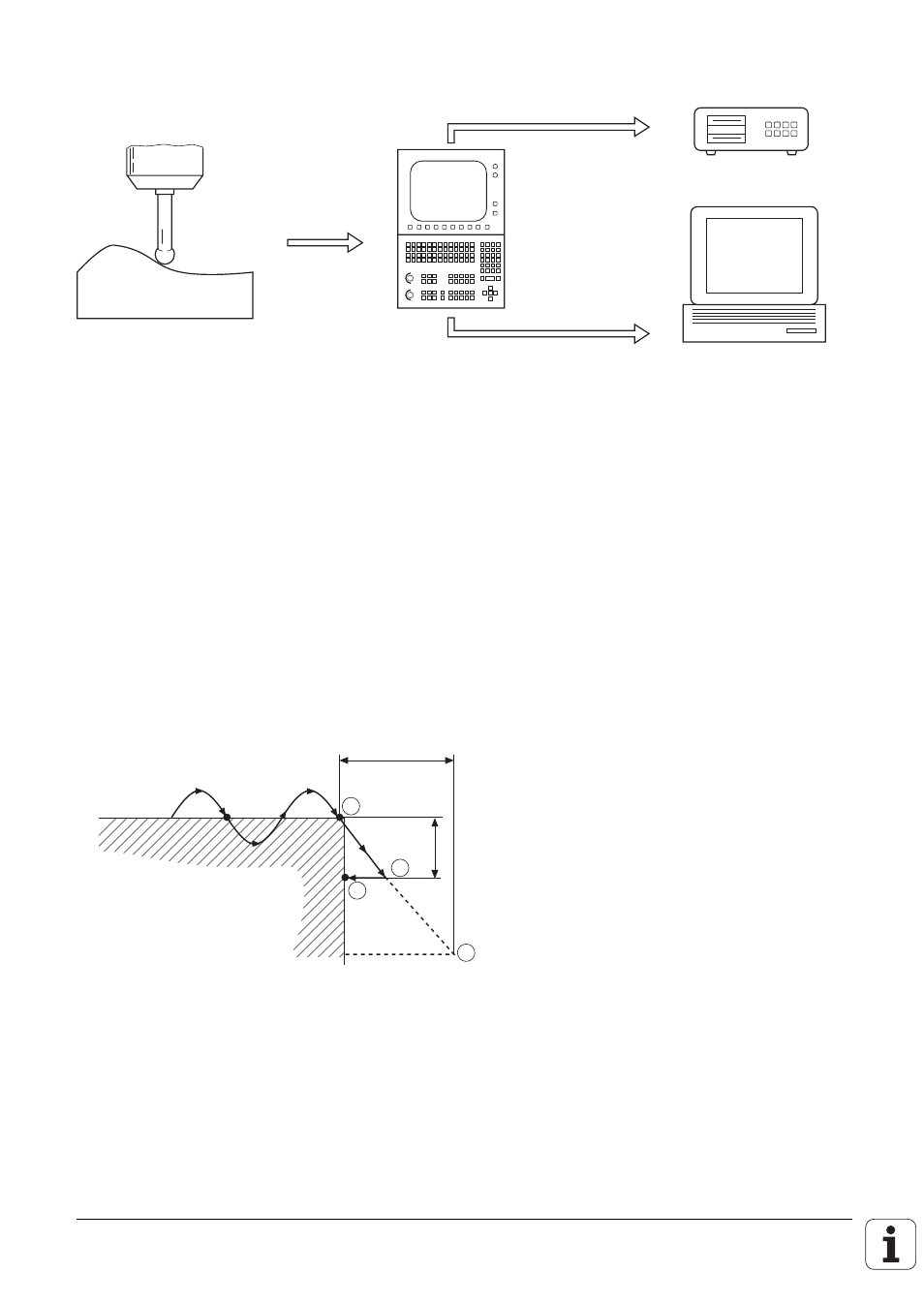2 response of the digitizing sequence at corners – HEIDENHAIN TNC 407 (243 020) Technical Manual User Manual
Page 308

The acquired data can be stored in the controller's program memory, on the FE 401 floppy disk unit
or in a PC.
FE 401
Further particulars about scanning cycles will be found in the TNC User's Manual.
9.2.2 Response of the digitizing sequence at corners
The scanning sequence responds differently for inside and outside corners. Here the two
parameters PP.INT (maximum probe point interval) and TRAVEL from the "Meander" and "Contour
Lines" scanning cycles operate like a travel limiter. Depending on the values that are entered for
these parameters, either the travel or the probe point interval are limited.
The travel is also responsible for geometrical accuracy at the corners. The smaller the stroke, the
greater the accuracy of corner resolution. If too small a stroke is defined however, it may affect
clearance at acute inside corners (minimum travel = 0.1 mm).
Outside Corners
PP. INT
TRA
VEL
1
4
3
2
Contour
On outside corners, having probed the last point ① the touch probe moves down the resultant
straight line until it either makes workpiece contact again or hits one of the two limits TRAVEL ② or
PP.INT ③. In the illustrated example TRAVEL is the limit, and the touch probe returns to the contour
④ in the inverse scanning direction. The new scanning direction is defined by the probed points ①
and ④.
